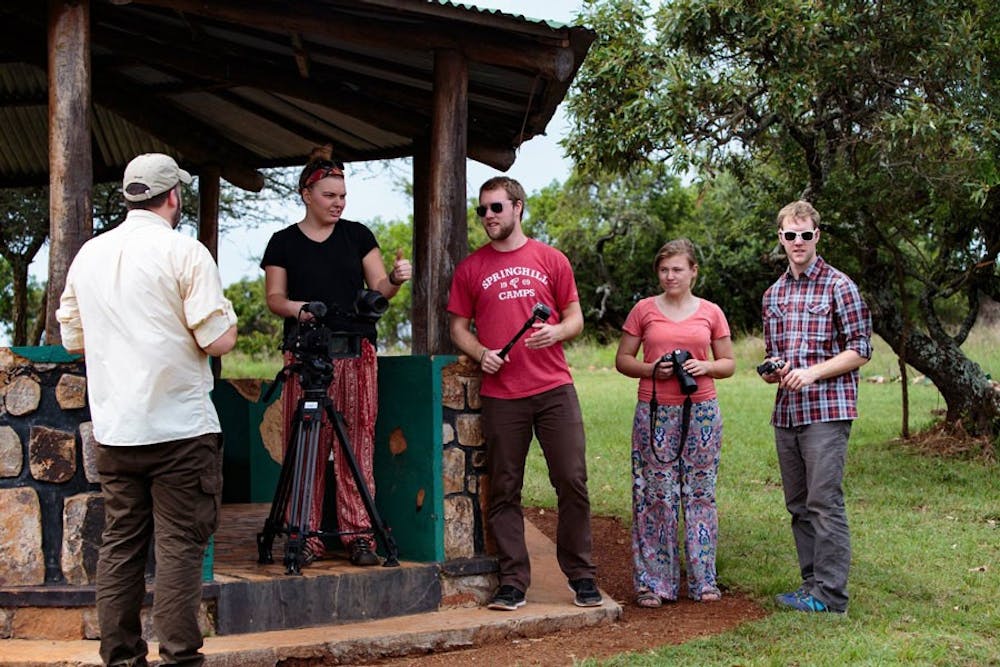By Laura Koenig | Echo
The international documentary filmmaking class, along with the sociology department's ethnic and minority issues class, traveled to Rwanda and Uganda over J-term. The film students recorded interviews with a variety of people in Rwanda for a documentary, which they are currently piecing together.
Seven film students led by associate media communications professor Steve Bailey arrived in Africa with a few ideas for the theme of their documentary but no concrete storyline.
As they interviewed the Rwandan Youth for Christ director, genocide victims, pastors and American missionaries working in Rwanda, the students began to piece together a story of hope for this small country.
After suffering the Rwandan genocide between the Hutu majority and the Tutsi minority in 1994, the people of Rwanda want to highlight the transformation of their country over the past 20 years, focusing on the future instead of the past.
"A couple people that we interviewed really wanted to emphasize that right now Rwanda is a peaceful, stable and fruitful country," said junior Elyse Horb. "It's very important to the people in Rwanda that the rest of the world knows that."
The students not only experienced the challenge of choosing a theme, but also the adventures of filming internationally.
Upon arriving in Africa, the customs agents thought the team's cameras looked suspicious, so they held them overnight. A few students had to wait over 20 hours for customs to release the equipment.
The team had to use translators during the interviews and learn how to determine the appropriate times to either pull out their cameras or just watch and listen without recording.
"The trip hasn't changed my perspective overall on filmmaking," junior Logan Evans said. "I've always really recognized filmmaking as being able to tell a story and have loved doing that. But I think it gave me new perspectives on filming internationally and the things to be prepared for."
Evans also thought carefully about the balance between getting the needed information and footage while also caring about the people, respecting their stories and building relationships.
The team did not have as many opportunities to film in Uganda. However, they had the chance to interview American missionaries working there. With this footage, they will create a promotional video for the missionaries to use to share their ministries with others.
Along with this piece, the students are working together in their free time to finish their documentary about Rwanda. Each student is pitching in to listen to the interviews, piece the storyline together, put footage on the screen and color-correct. They are hoping to have the documentary done by spring break.
The final product will determine how they'll use the documentary. However, they are planning to share their experiences and final product with the Taylor community with a screening.



